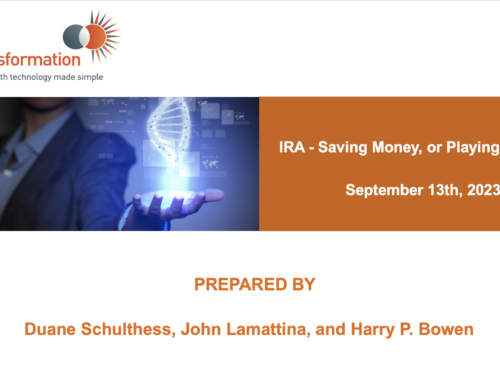On 2 December, the European Federation of Pharmaceutical Industries and Associations (EFPIA) hosted a webinar on the implementation of industry’s Principles on clinical trial data sharing. The Principles can be found at http://transparency.efpia.eu/responsible-data-sharing.
In July 2013, the members of EFPIA and its US counterpart PhRMA committed to make clinical data more systematically available to the research community. Since the launch of the principles, EFPIA and PhRMA have widely and actively engaged with relevant key stakeholders on how to move forward, and companies have been working to meet the January deadline.The Webinar was an opportunity to summarise and/or discuss with the participants the various issues that have arisen in these exchanges, and also hear from leading companies how they are preparing for the next year.
The EFPIA Live Webinar was moderated by Faraz Kermani, Senior Editor of the Pink Sheet (Elsevier) and included as speakers: Duane Schulthess, Managing Director of Vital Transformation, Ingrid Klingmann, Chairman of the Board of the European Forum for Good Clinical Practice (EFGCP), Ivan S.F. Chan, Executive Director of Merck Sharp & Dohme (MSD), Vice President of Global Exploratory Development at UCB Pharma Duncan McHale, and Sabine Atzor, Head of EU Regulatory Policies of F. Hoffmann-La Roche. Participants included representatives from the European Parliament, Johnson & Jonhson, Astellas, ABPI, Deloitte, LIF, Informa, – amongst others.
Mr Duane Schulthess presented the results of a survey on clinical trial data sharing conducted in October 2013, following the 27th August event on “A Roadmap for Sharing Clinical Trials Data” organised by VitalTransformation and EFPIA. The survey involved more than 200 respondents representing different sectors.
Among the most interesting data, Mr Schulthess observed that approximately 70% of respondents do not want to see raw data published, 60% would agree to having Clinical Studies Reports (CSRs) published and 60% would prefer to have clinical data made available only to qualified researchers. Almost 60% of respondents expressed trust in pharmaceutical companies managing the clinical trial data disclosure process. However, the survey indicates a near universal distrust of private insurance companies.
When asked by the moderator whether survey results were distorted by a significant number of industry-based responses, Mr Schulthess pointed out that the impact of industry responses was only 2% on the mean.
Ms Ingrid Klingmann presented the results from the Multi-Stakeholder Roundtable Meeting “Sharing Clinical Trial Data in the Interest of Patients and Research” held in Brussels on 16 October. This workshop aimed at identifying areas of common ground for transparency rules between the stakeholders and at working out possible recommendations to the European Parliament, European Commission and Council.
Among the main roundtable outcomes, stakeholders agreed that transparency is a vital part of clinical research, and that it has to be enabled in the long term by both public and private actors.
Ms Klingmann then briefly summarised the policy context of clinical trial data sharing, and observed the various pieces of legislation and initiatives at stake, i.e. the European Commission’s “Proposal for a Regulation of the European Parliament and of the Council on clinical trials on medicinal products for human use, and repealing Directive 2001/20/EC”, the European Parliament and Council’s positions, the EMA draft policy, the joint EFPIA/PhRMA Principles and initiatives such as “AllTrials”.
In this debate, Ms Klingmann highlighted the different points of discussion including on the industry’s role and that of competent authorities (EMA), academia and medical journals, and priorities for patients as well as Ethics Committees. Specifically on the last two, it was noted that patients would highly value development of lay summaries, free access to medical journals, as well as access to their own trial results. As far as Ethics Committees are concerned, it was discussed that these would benefit from having access to raw data and full results of trials approved by the Committee.
When drawing her conclusions, Ms Klingmann noted that none of the stakeholders asked for unlimited public access to clinical trial data. The participants generally felt that the detailed issues should be developed through further discussion rather than being mandated through legislation.
When asked by the moderator on how lay summaries will be compiled, Ms Klingmann pointed out that, at the moment, it is premature to go into the details of these documents. The Commission is likely to provide some more specific guidelines at a later stage, and patient organisations and other stakeholders are expected to be involved in the development of such guidelines.
Mr Ivan S.F. Chan focused on how MSD is implementing EFPIA/PhRMAPrinciples, in particular the first commitment to “Enhancing Data Sharing with Researchers”.
Mr Chan noted that MSD is fully committed to supporting and implementing the EFPIA/PhRMA Principles, and already collaborates with a series of stakeholders in this process, including via the Institute of Medicine’s (IOM) global effort on Transparency of Clinical Trial Data Access. Mr Chan anticipated that the IOM will issue an interim report on their findings in the first quarter of 2014, and publish a final report by the end of 2014.
MSD is also committed to timely registration and publication of clinical trial information and the disclosure of trial results. Mr Chan noted that since 2008 the company has responded to data requests from external researchers via an established internal process which is consistent with the industry Principles. However, he noted, it is extremely important to advance science while protecting patients’ privacy.
Mr Chan then observed that out of the 57 requests for data from external researchers received in the last 2 years, 47 have already been approved and completed (data already transferred). Only 3 requests were rejected due to their complexity, inappropriateness (e.g., funding request) and/or due to lack of informed consent.
In conclusion, Mr Chan pointed out that MSD is in the process of creating a microsite where clinical studies and lay summaries are expected to be published and therefore available for consultation.
Mr Duncan McHale shared UCB Pharma’s clinical trial data sharing experience by noting that only 1 to 5 applications for data per year were received, mainly focused on new medications and medical products. Mr McHale therefore noted that UCB will only be able “to go back” to 2003/2004 in terms of retroactive data, as the company’s system is fairly new. He then stated that UCB Pharma established an internal process for scientific review of clinical data requests two years ago.
Focusing on the implementation of the EFPIA/PhRMA Principles, Mr McHale noted that UCB Pharma is fully on track towards achieving the 1st of January goal. However, he also highlighted some challenges in terms of financial, scientific and legal resources. In conclusion, Mr McHale emphasised that UCB Pharma will also have a separate website in 2014.
Ms Sabine Atzor began by illustrating that F. Hoffmann-La Roche supports the sharing of analysable patient level data. She noted that in January 2014 her company will implement an established and effective system of data sharing via a new website, also providing access to CSRs.
Ms Atzor highlighted the need to implement “data sharing agreements” to ensure that the data is used for the agreed research purposes and not for commercial ones.
On the implementation of the first Principle, Ms Atzor emphasised the need for “Independent Review Panels” and for ensuring anonymisation of patient level data with the removal of details that could help identify the individual patient. To this end, F. Hoffmann-La Roche will implement a Secure Analysis System, which can only be accessed by researchers. Patient level data will not be available in “download”, to respect the privacy of patients.
Mr Faraz Kermani then moderated the Q&A session, where the speakers addressed the following issues:
- Anomymisation of data: Mr Chan pointed out that data anonymisation should be a joint effort and responsibility of the industry.
- IOM’s approach compared to EFPIA/PhRMA’s: Mr Chan noted that the IOM has started involving EFPIA and other stakeholders in discussions around common challenges so as to find common solutions.
- Amount of data requests following implementation: Mr McHale noted that after the implementation of better transparency and microsites, data will simply be available to everyone interested, but this will not necessarily influence, in his opinion, the amount of data requests.
- Retrospective data:
- Ms Atzor pointed out that Roche’s objective is to go back to 1999. For patient level data it might be difficult to go further back in time.
- Mr Chan stated that MSD will analyse requests case by case, and no limits will be established. He noted, however, that some databases have been changed and updated throughout the years, so it will be difficult to find the original raw data.
- Mr McHale noted that for certain studies, UCB Pharma will not be able to share some data because some clinical trials were “licensed” to other companies.
- Independent Review Boards: Ms Atzor noted that on a temporary basis, Roche will be working with a pool of external experts/researchers, with different backgrounds, and with whom there will be contracts in place. The aim however, is to move into a completely independent Board with an independent organisation.




